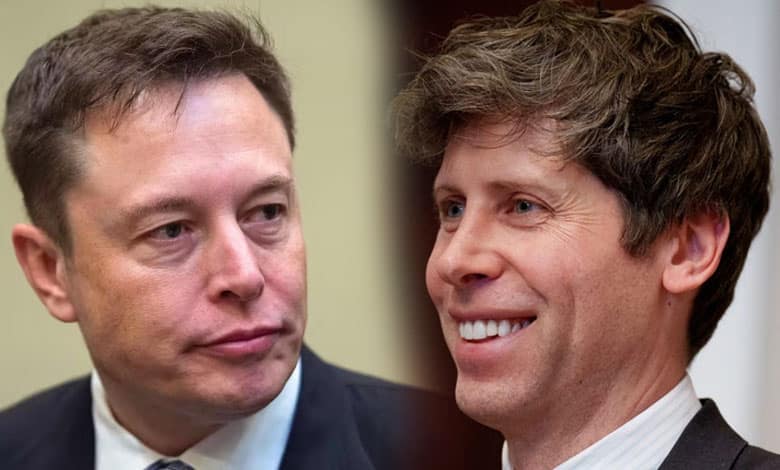Elon Musk Offers $97 Billion to Buy OpenAI, Sam Altman Rejects and Jokes About Buying X for $9B
In a dramatic turn of events, Elon Musk has attempted to buy OpenAI for $97 billion, just months after filing two lawsuits against the company.

In a dramatic turn of events, Elon Musk has attempted to buy OpenAI for $97 billion, just months after filing two lawsuits against the company. The billionaire entrepreneur, along with a group of investors, approached OpenAI’s CEO, Sam Altman, with the offer to purchase the company and return it to its nonprofit origins. However, Altman swiftly rejected the proposal with a firm “no thank you.”
Table of Contents
Musk Proposes Buyout to Return OpenAI to Nonprofit Status
According to a recent Wall Street Journal report, Musk’s investment group proposed the buyout to OpenAI’s board in an effort to regain control over the company and return to its initial mission as a nonprofit organization. The offer to take the helm came after Musk’s dissatisfaction with OpenAI’s shift toward a more commercial, profit-driven structure.
Marc Toberoff, Musk’s lawyer, emphasized the gravity of the situation in a statement: “If Sam Altman and the current board want OpenAI to become a fully for-profit company, it’s important that the charity is fairly compensated for losing control of such groundbreaking technology.”
Also Read: Musk vs. The Government: Court Orders Full Block on Treasury Data Access; Here is Why
Altman Responds Playfully to Musk’s Offer
In a surprising twist, Sam Altman responded to Musk’s buyout offer in a post on X, Musk’s social media platform, jokingly saying, “No thanks, but we’d be willing to buy Twitter for $9.74 billion if you’re interested.” This playful comment referenced Musk’s $44 billion purchase of Twitter in 2022, a transaction that transformed the social media platform into a new entity known as X.
Despite the lighthearted response, the tensions between Musk and OpenAI have been far from humorous. Musk’s frustration with OpenAI’s commercialization has only grown over time, especially after the company introduced a “capped profit” model that he believes undermines the original nonprofit mission.
Musk’s Legal Battle with OpenAI
Musk’s legal conflict with OpenAI dates back to July 2024, when he filed a lawsuit accusing the company of diverging from its founding principles. Specifically, Musk was concerned that OpenAI’s shift towards a for-profit structure jeopardized its commitment to developing artificial intelligence that would benefit humanity rather than corporate interests. Musk’s legal battle continued into August 2024, when he filed another lawsuit, accusing OpenAI of engaging in “racketeering” and racing to develop powerful “artificial general intelligence” technologies for profit maximization.
Musk’s criticism of OpenAI is deeply rooted in his vision for AI as an open, nonprofit initiative. Musk has consistently expressed concerns that OpenAI’s growing commercialization would lead to corporate control over AI technology, which he believes could have detrimental consequences for society.
A Growing Rift Between Musk and OpenAI
Musk, one of the initial backers and founders of OpenAI, has long been at odds with the company’s direction. OpenAI began as a nonprofit organization with the goal of advancing artificial intelligence for the betterment of humanity. However, as the company grew and the field of AI became more lucrative, OpenAI shifted to a hybrid model that included a “capped-profit” approach. This move, which was intended to attract investment, was viewed by Musk as a betrayal of the company’s original mission.
The growing tensions between Musk and OpenAI have underscored a broader debate about the commercialization of artificial intelligence and the ethical considerations surrounding its development. As the AI landscape continues to evolve, it remains to be seen whether Musk’s efforts to buy out OpenAI will succeed or if the rift between him and the company will deepen further.
With Musk’s continued involvement in AI and his strong views on the future of technology, the battle between him and OpenAI is likely to be one of the defining tech stories of the year.
